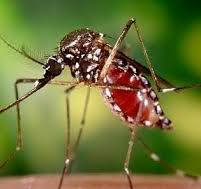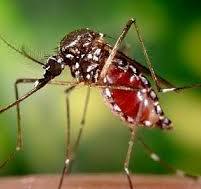by Richard Sanders, Staff Writer
In the heart of Cambodia, American entrepreneur Tom Gillespie is making waves with an innovative solution to a pressing public health challenge: mosquito-borne diseases. Recognizing the urgent need for effective mosquito repellents in tropical regions, Gillespie has developed a groundbreaking product—Mosquito Wipes. This initiative not only aims to protect populations from mosquito bites but also champions environmental sustainability, offering significant benefits for the Pacific Islands and beyond.
A Revolutionary Product: Mosquito Wipes
Mosquito Wipes are single-use, biodegradable wipes infused with a 100% natural mosquito repellent derived from coconut oil. This formulation is particularly noteworthy for its safety; it is suitable for all users, including children and pregnant women. By providing a user-friendly and effective solution, Gillespie’s product addresses a critical health concern in many tropical areas, where mosquito-borne diseases pose significant risks.
Key Features of Mosquito Wipes
- Natural Ingredients: The wipes are free from harmful chemicals, reducing the risk of allergic reactions and making them appealing to health-conscious consumers.
- Biodegradable Material: Gillespie is committed to using environmentally friendly materials, such as cotton or cellulose, ensuring that the product aligns with the growing demand for eco-conscious products.
- User Safety: Designed for all demographics, the wipes enhance market appeal and accessibility.
Market Potential and Analysis
While the mosquito wipes market is relatively nascent, Gillespie’s SWOT analysis reveals substantial potential:
- Strengths: The natural formulation meets the increasing consumer preference for eco-friendly products, paving the way for potential partnerships across health, tourism, and educational sectors.
- Weaknesses: As a new entrant, Mosquito Wipes lack market presence and consumer familiarity, which could pose initial challenges.
- Opportunities: High tourist traffic in regions like Cambodia presents an opportunity for expansion. Collaborating with local governments can further promote health and environmental sustainability.
- Threats: Concerns regarding waste management of single-use products and regulatory challenges in plastic-reducing markets must be addressed.
Addressing Environmental Concerns
One of the critical challenges identified is the potential environmental impact of single-use wipes. Gillespie proposes a dual-purpose solution: used wipes can be repurposed as natural fertilizer, harnessing the coconut fiber. This innovative approach not only mitigates waste concerns but also supports local agriculture.
Implementation and Distribution Strategy
To ensure the success of Mosquito Wipes, Gillespie has outlined a comprehensive strategy:
- Collection System: Designated collection points for used wipes in public areas such as schools and hospitals will facilitate proper disposal and repurposing.
- Partnership with Local Farmers: Collaborating with local agricultural communities to distribute collected wipes as organic fertilizer fosters community engagement and supports sustainable farming practices.
- Government Support: Engaging with governmental bodies will be crucial to endorse and promote the initiative, emphasizing its health and environmental benefits.
Multi-Faceted Distribution Approach
The distribution of Mosquito Wipes will involve several channels:
- Free Distribution: Offering wipes at no cost in schools, hospitals, and public institutions to maximize reach and public health impact.
- Retail Partnerships: Collaborating with pharmacies, hotels, and restaurants to sell wipes, generating revenue that can be reinvested into community health initiatives.
- Tourism Integration: Partnering with airlines to distribute wipes to arriving tourists enhances their experience while promoting health and safety.
Incentive Program for Community Engagement
To foster community involvement in the collection and recycling of wipes, Gillespie proposes an incentive program. Participants can earn rewards for returning used wipes, thereby promoting a sense of responsibility and engagement among community members.
Tom Gillespie’s Mosquito Wipes initiative presents an innovative opportunity to tackle public health challenges while promoting environmental sustainability in Cambodia and the Pacific Islands. By transforming a potential threat into a strength, Mosquito Wipes can position themselves as leaders in both mosquito repellent solutions and effective waste management strategies. Gillespie is eager to refine this proposal and explore partnerships that can further enhance its impact.
This initiative not only aims to protect health but also strives to create a cleaner, greener future for communities facing the dual challenges of mosquito-borne diseases and environmental sustainability.



